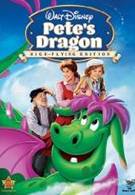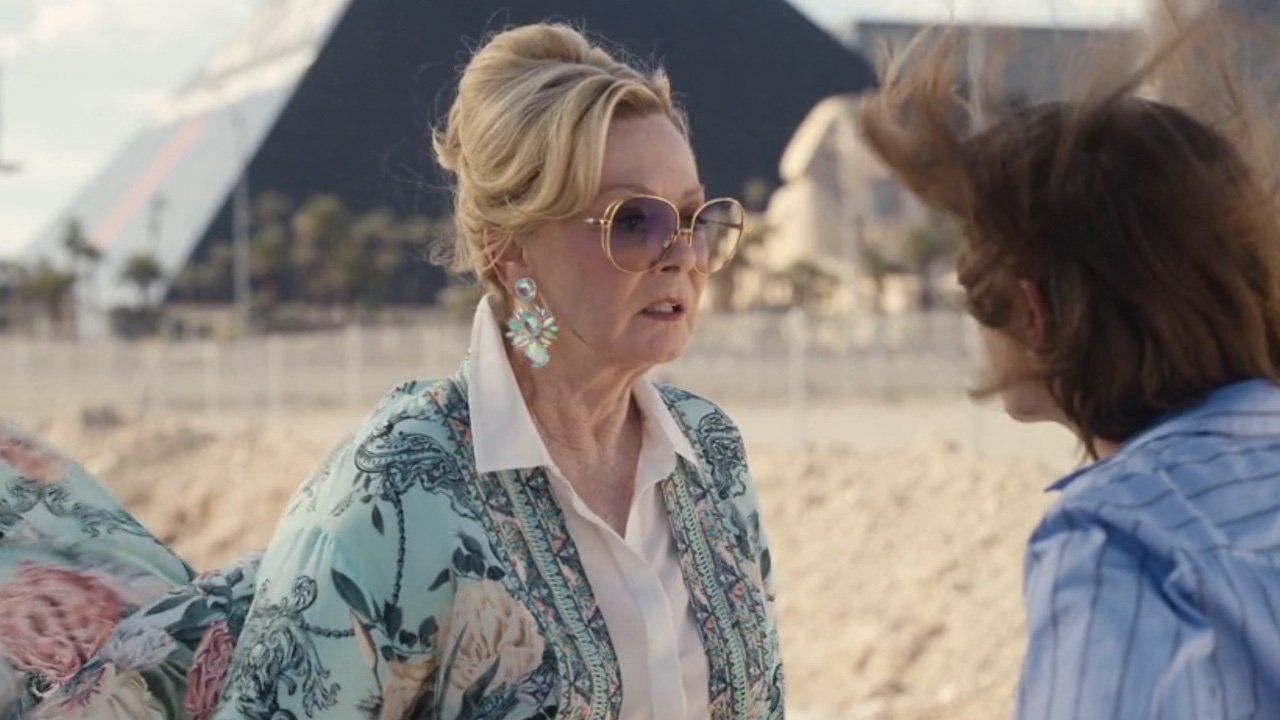Since its original release in 1977, Pete’s Dragon has been tucked away on the lesser-used shelves of my Disney memory, somewhere between Son of Flubber and The Apple Dumpling Gang. The last time I saw it was on an ill-remembered long night of early-morning cable and ice cream after crying over some lost boy. Turns out I wasn’t missing much. Pete’s Dragon is the avid and rambunctious tale of a young orphan (Sean Marshall) who is continuously running from one bad situation to the next. He is accompanied by a whirlwind of an animated dragon, Elliott (voiced by Charlie Callas). After some small misadventures, Pete and Elliot reach Passamaquoddy, Maine, where Pete, in good form, befriends Nora (Helen Reddy) and her father (Mickey Rourke), the aptly named Lampie, two kind souls who run the lighthouse on the edge of town. Shenanigans ensue when the townsfolk and outsiders realize Elliott is not a fictional figment dwelling within the recesses of Pete’s mind. In the end, Eliott and Pete save the town from utter calamity, and Pete (gasp!) finds the home he always wanted!
By all counts, Pete’s Dragon should be a nice little film with few plot holes and lots of feelin’ groovy, lovey-dovey bullshit. Unfortunately, with a running time of 128 minutes, the film is, at best, a less-than-charming length. Many scenes, rather than furthering plot, simply segue from one bizarre musical number to the next. Highlights include a rambunctious Mickey Rourke playing a goofily drunk but very loving father, and a beautiful musical number by Helen Reddy (The tune is called “Candle on the Water,” and it was nominated for an Oscar in 77’).
This probably isn’t being wholly fair. My grasp of the heights filmmaking had reached circa 1977 is rather inadequate. Luckily, the disc had a special feature that schooled me on the art of adding animation to live-action shots. This led me to appreciate the work that went into Pete’s Dragon. This film was one of the first where actors were aware of the location of an animated character and made correct eye-contact accordingly. Even though the animated-to-live shots were complicated, this does not, unfortunately, save the film from being simply average. Several times I wished for some bippity-boppity-boo magic to cut, delete, and be rid of scene after scene of ridiculously overt acting and dialogue. Although, I will give a thumbs-up to three scenes: The first is a scene between Lampie and Hoagie (Red Buttons), who are drunkenly meandering to the cave where Elliott lies sleeping. The second is a scene where Dr. Terminus (Jim Dale) cannot pronounce Passamaquoddy…and cracks a joke about France. The final scene melting my cold and critical heart occurred at the end of the film, when Pete cries as Elliot leaves (though I later learned this was a side effect of the lights that went with sodium-screen processing; thank you, special features).
I was terribly sad Jeff Conaway’s role in this film was overly played, as he was billed on the back of the DVD case. In retrospect, I’m certain that’s what this film needed—a little more Kenickie. Overshadowing some neat tricks and fancy extras is a new feature Disney likes to call “Fastplay.” When you pop in Pete’s Dragon (High-Flying Edition), the disc immediately plays, giving you the option to view the main menu, while wooing you into watching via Fastplay. What is this Fastplay? It is a manipulative little fuck of an idea, forcing the unsuspecting into watching preview upon crudely memory-evoking preview of upcoming Disney releases. If you hit main menu, you can choose between looking at the extra features and heading straight to the film. If you go this route, there are no previews. As an irritating side note, if you accidentally choose the Fastplay option, the disc will not allow you to return to the main menu (at least if you are watching via a computer).
The special features are also a waste of time, except for “Brazzle Dazzle Effects: Behind Disney’s Movie Magic.” This feature explains how adding animation to live shots began and continued to become more technologically advanced as time went by. This feature would have been especially sweet if Sean Marshall hadn’t been conned into making it seem as if Pete’s Dragon changed the lives of children the world across and is now upheld in the nostalgic hearts of those who grew up in the ‘70s. (It wasn’t; I have my sources.)
Hacks Went Back To Vegas, And It Made Me Miss The Old Seasons For One Big Reason
Tom Cruise's Running Style In The Mission: Impossible Films Is Iconic, And Apparently, It's Connected To One Of His Outsiders Co-Stars
Somebody Actually Used It’s Always Sunny In Philadelphia’s Musical To Propose, And It’s Weirdly Sweet











